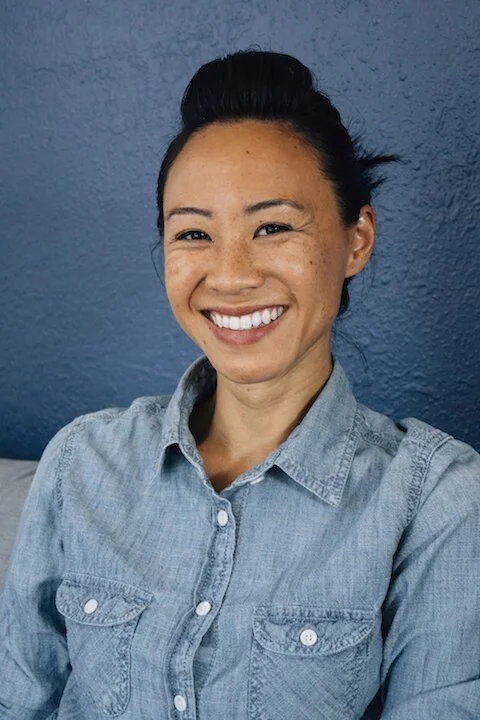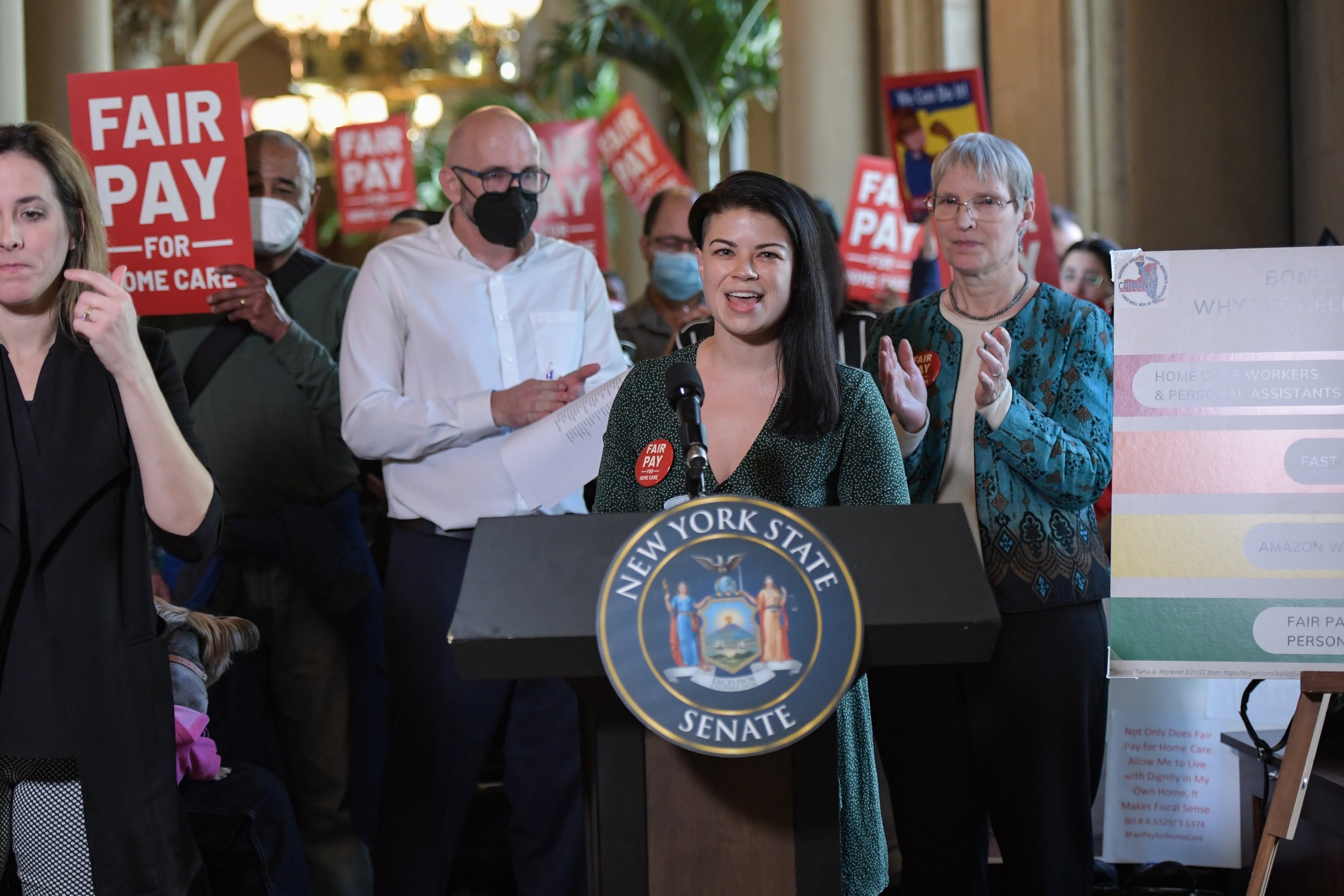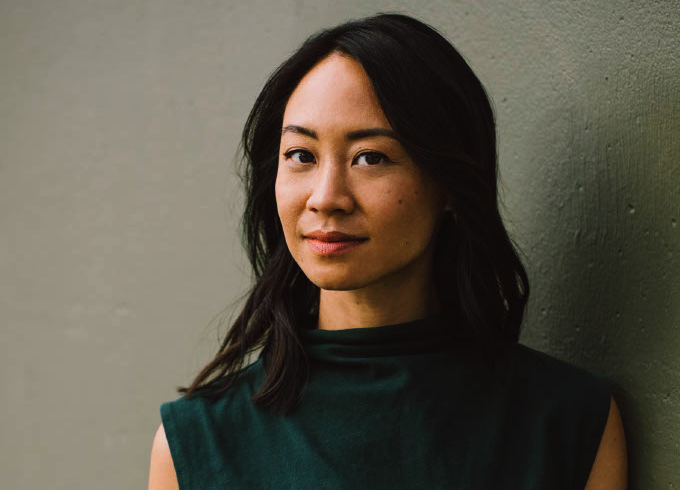Kim Tran, Alliance Builder between the Black and Asian communities
© Andria Lo
Dr. Kim Tran (she/her) is an inspirational human being. She has lived her entire life in devotion to fighting for justice and building solidarity between like-minded people and groups. As a queer Asian woman, she is a prominent advocate for the LGBTQ community, the Black-Asian alliance, and opposing oppression. This intellectual has been a proponent for DEI long before DEI became a buzzword or reached the lips of the American mainstream. Read on to learn more about Dr. Kim Tran!
Where are you based?
Oakland, CA
What inspired you to get involved in activism?
When I was young, my mom participated in her very first union strike. She only had a week’s worth of savings, but she took the risk and stood on that picket line because she knew ultimately it would benefit her friends, her colleagues and herself. She didn’t have childcare, so I went with her. My mother raised me on her own, as a single parent. Money was often tight, but we always had family and community. In turn, she taught me that community is something you have to fight for in big and small ways.
When did you experience your queer awakening?
My experience of queerness wasn’t linear; there isn't one specific thing. My identity unfolded itself to me in many moments. My first kiss, a crush when I was 16, all of these little hints of who I truly was. I was 19 when I finally came out to myself. I met someone and that was it, it was undeniable. I was a combination of excited, terrified, and relieved.
You began your career as an LGBTQ youth advocate in your hometown. What motivated you to choose advocacy as a career? Would you call it a calling?
My advocacy for queer and trans youth was a necessity borne of my own upbringing and own experience. I knew all too well how it felt to be closeted and raised in a religion that shames who you love and how you love them. I wanted to alter this reality for the other young LGBTQIA+ people in my community. I wanted them to have the material and emotional support they required to feel safe and to thrive because of who they are, not in spite of it. I wouldn’t describe it as a calling, it felt more like a deeply held need.
The Black Lives Matter movement started in 2014. How did you become involved then?
I was in graduate school in 2014 and already teaching classes about social protest movements to a lot of organizers and activists. They began inviting me to teach in community spaces. So I started doing political education work around how Asian Americans specifically could uproot anti Blackness in our families, relationships, friendships, our communities. I created lessons that explicitly instigated the deep reflection, analysis and learning that our community needs to achieve collective liberation.
Your work focuses on the Black-Asian alliance. Can you tell us about this alliance, and how the two communities are working together towards common goals?
Black and Asian American solidarity has an incredibly long global history. Some key moments include the Bandung Conference in 1955, Black American opposition to the American War in Vietnam, but most recently the solidarity of Asian Americans in the Black Lives Matter movement through formations like Asians4BlackLives. It’s vital to remember that this partnership that strives for the shared goal of social change and justice has been largely erased. Years ago, I saw Angela Davis give a talk with Grace Lee Boggs. She said that in one of the most prominent films about Black radicalism, Malcom X, the figure of Yuri Kochiyama was completely erased. Here was this strident activist, a Japanese woman and close friend and ally to Malcom X who literally held him as he took his last breath, completely invisible from the most popular story about his life. Even if we don’t see it, this history beats behind us.
You have a long career in political education, including educating organizations like corporations, non-profits, and academic institutions. Where have you taught and which were your best experiences?
I believe that you can seed change in every context. This means I’ve worked with Fortune 500 companies, social impact nonprofits and unpaid for community organizations to create transformative change. My favorite moment is when someone realizes what structures have shaped their lives and how they can have an active role in changing them. It’s like a light comes on behind their eyes and there’s this rush of anger, inspiration, and possibility. That’s what I work for in every session whether it’s for organizers or employees.
You are writing a book called After Diversity. Can you tell us what this book is about?
After Diversity is a roadmap of political feelings; it shows how individual experiences of belonging or exclusion can motivate us to move in multiple directions. In 2016, I gave a public talk on intersectional feminism in a very conservative part of Michigan. A young man attended, intent on contradicting what I was saying. When I asked him what brought him to the room, he told me he felt like he didn’t see himself in the subject matter and that in turn made him angry, and ultimately conservative. That interested me because he shared the exact same feelings of exclusion that women of color in the room experienced, (albeit for different reasons.) I’ve been working in the Diversity, Equity, and Inclusion industry for over fourteen years. I’ve learned that the exact same feelings of exclusion can either justify the rise of authoritarianism or movements for community safety and affordable housing. The book is about these feelings and how we can marshal them toward collective instead of individual or oppessive ends.
The election of Trump and his second administration is a huge setback to LGBTQ persons and persons of color (POC). Do you see your work any differently in the present context as opposed to the last decade? Why or why not?
There’s a lot of legitimate fear and anxiety circulating. Our rights are being quickly scaled back and even the marginal wins we’ve made feel tenuous. While I share much of this fear, I find this moment inspirational. It’s an opportunity to align ourselves around a common right to thrive. Everyone is entitled to care when we’re sick, shelter when we’re cold, safety when we’re scared. This moment, like many others in history, is forcing us to take a stand for those rights. I’ve been doing this work long enough to know that it’s not about building something brand new, it's about staying consistent and committed to our values whether we’re at school, at work, or in our neighborhoods.
© Andria Lo
What are basic steps we can take in everyday life to continue to fight for racial and social justice?
We need to get uncomfortable, in daily conversations or broadening our membership to groups. That might mean talking to our neighbors about what safety really is, or our colleagues about who we promote, maybe challenging our parents and kids on the things they say. It also means joining a new mutual aid group. We need broad coalitions, and coalitions aren’t built through safe conversations with people who completely agree with us. I’m not talking about people who disagree with our humanity, but about purity politics. Bernice Johnson Reagon once said that coalitions make you feel incredible fear. Specifically, “Most of the time you feel threatened to the core.” I think we all need to be a little more uncomfortable right now.
What specific political changes in America do you believe need to happen to reach a just future for LGBTQ, Black, Asian, and other marginalized groups?
When people learn about my identities they think all I want is marriage equality or trans rights, but here’s more to the equation than that. My communities don’t have healthcare, we don’t have affordable housing, we need jobs. And I know everyone can’t work on every cause. That’s wildly unsustainable. We all need to pick one thing and fight like hell for that one thing. Some folks are going to work on formal change like voting rights, some will take more radical steps. We need everyone, everywhere, all at once.
© Krishna Desai
It has been a crazy past few years, and we suspect at least four more. How have you been staying positive?
I try to do things that nourish me that align with my values. For years, I’ve helped my queer and trans family and friends build closets and outfits that make them feel great in their bodies because most clothing brands and styling advice is so straight and centered around cisgender people. Nonbinary styling specifically is so often just boxy, shapeless garments. So I recently launched a styling project for my community called @euphoria_styled_ It helps me make a visible, straightforward impact in the everyday lives of my community. It helps me stay grounded because the organizational and political stuff I do exists in a much longer timeline.
What is your motto in life?
Be consistent. I aspire to live and act in alignment with my values, whether that means working exclusively with clients whose values I appreciate or where I rent clothes from. I want stay true to myself at all times in all capacities.
Where can we find out more about you?
My organizational work is at our website https://www.desaiandtran.com/ ; My styling project is @euphoria_styled_ on instagram and my personal account @but_im_kim_tran








